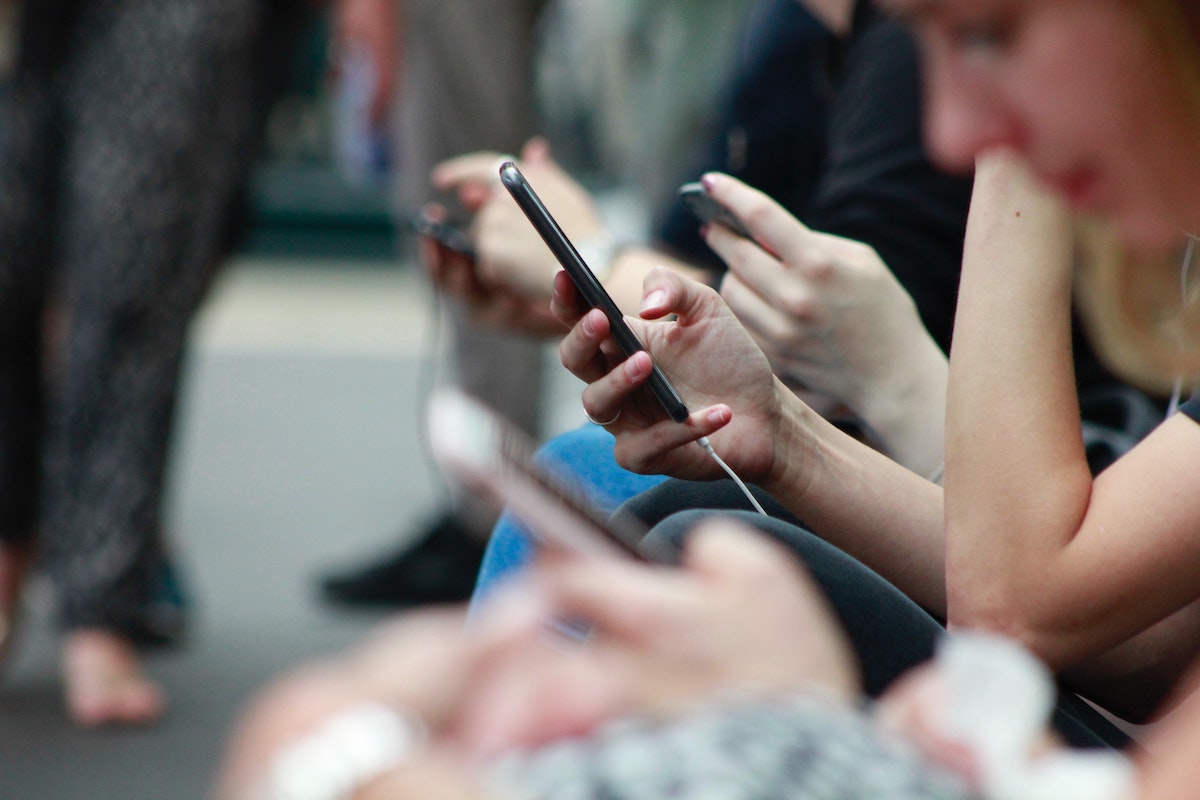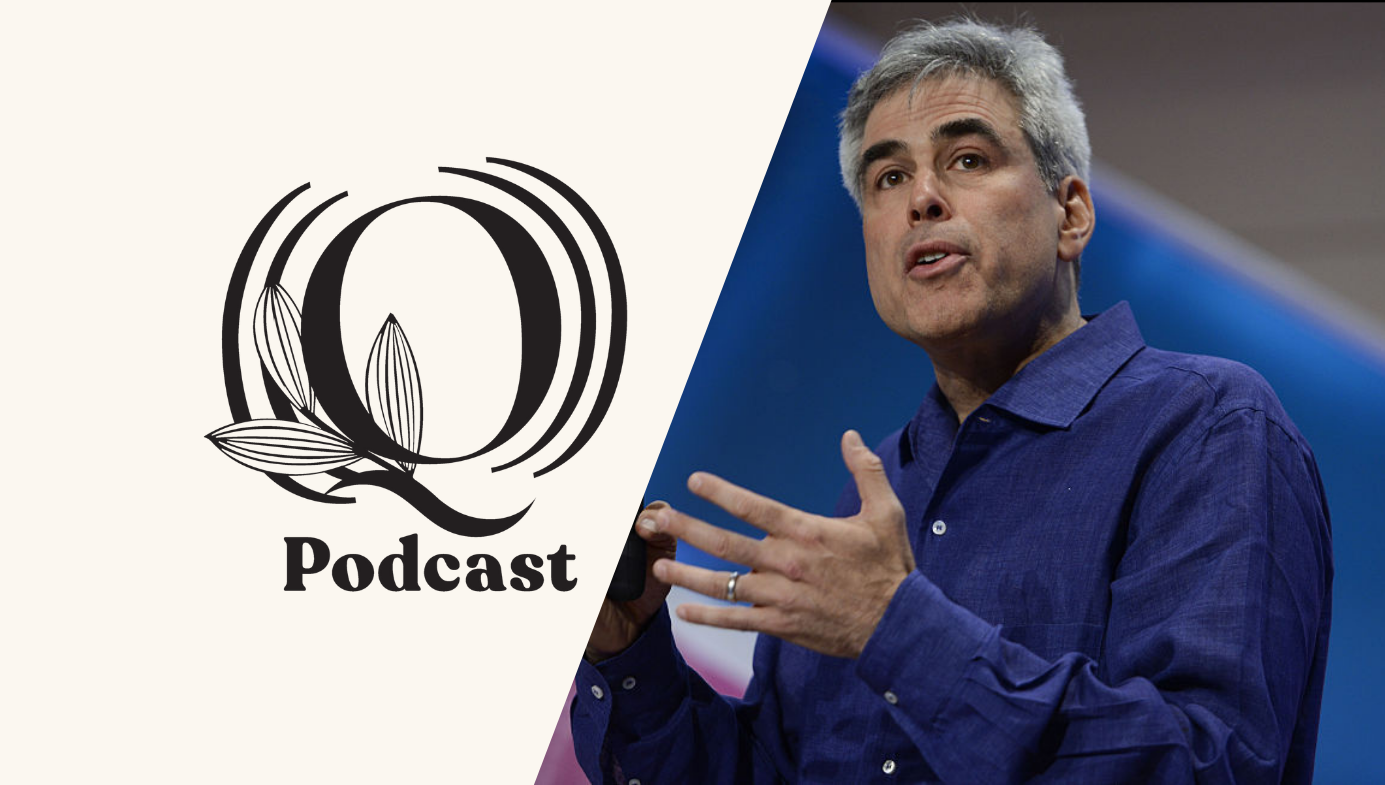mental health
My Generation Isn’t Suffering Enough
Discussions today around Gen Z’s mental health occlude this possibility of a lack of adversity in our daily lives.

An age of happiness is quite impossible, because men want only to desire it but not to have it, and every individual who experiences good times learns to downright pray for misery and disquietude.
~Nietzsche1
My generation is miserable. Gen Z, those of us born after 1997, are the saddest, loneliest, and most mentally fragile age group to date, cursed with rising rates of anxiety, depression, and suicide. How can that be? How can a generation with everything feel so desperately unhappy? By almost every metric, human life is dramatically better today than it ever has been. The number of people living in extreme poverty has fallen from around 90 percent in 1820 to just 10 percent in 2015, while rates of illiteracy, mortality, and battle deaths are also in rapid decline. For the most part, Gen Z are heirs to an immense fortune: a utopian world of instant gratification and technological dynamism. In theory, this should be the age of happiness.
And yet, misery abounds. In the United States, 54 percent of Gen Z report anxiety and nervousness, according to researchers at the American Psychological Association. This is compared with only 40 percent of millennials and a national average of 34 percent. It isn’t just a case of self-report bias either, since the suicide rate for Americans aged between 15 and 24 has risen by over 51 percent in the last decade. For Gen Z women in particular, suicide rates have risen a staggering 87 percent since 2007. In my home country of the UK, one in four girls is clinically depressed by the time they are 14.
There’s no shortage of articles trying to make sense of the mental health epidemic at a time of such global prosperity. Teens and pre-teens today, we’re told, are simply interred beneath the weight of political issues like climate change, immigration, and sexual assault, as well as fatigued by job stress, exam burnout, and the attainment of unrealistic social media standards. The antidote, many suggest, lies in practicing better “self-care,” from daily gratitude journaling to adopting a 38-step skincare routine. And it’s a popular remedy. Since the pandemic began, online searches for “self-care” have risen 250 percent, with schools, universities, and employers turning to compulsory wellness programmes like mindfulness training and meditation sessions to improve mental health.
But, I suspect the problem is more nuanced than this. I don’t doubt that Gen Z is under a lot of strain, but I also think our plight is unique. For the first time in history, much of our misery stems not from too much suffering, but from not suffering enough. Gen Z does face real problems. I have certainly felt beleaguered by the pressures of social media, an oversaturated job market and the impact of coronavirus restrictions on my education. On top of that, there’s the difficulty of simply trying to exist as a fallible human in a political climate which demands infallibility, where nothing feels light-hearted anymore, and everything we say or do in our youth is stained onto the Internet for all time.

So, pressure is no doubt part of it. But previous generations faced egregiously difficult times: world wars, pandemics, economic crises, political rebellions, totalitarian regimes, and conditions of extreme poverty. Not only that, but today there are a wider range of mental health services available than ever before, and Gen Z are more likely than any other generation to seek treatment. So, for our rates of mental illness and suicide to be so high in a time of relative peace, there must exist a more convincing explanation than simply the asperities of life.
What lurks over my generation is not just a sense of misery, but meaninglessness. We exist in a state of lethargy and unfulfillment, tormented not by the tragedy of it all, but the futility. This is a point most articles and public figures today are less willing to discuss. But, to examine this possibility isn’t to say that Gen Z never struggle—but to suggest that at least some of us are caught in a rut of boredom, not burnout.
The power of suffering
Humans are not built for a life of ease. This is a forgotten wisdom, one revered by the ancient Stoics and once fundamental to philosophical thought. Within the writings of Seneca and Epictetus lies the maxim that it is not our hardship that harms us, but how we relate to it. In choosing to learn and grow from affliction, we fortify our mind. As Seneca wrote, “Difficulties strengthen the mind, as labor does the body.”
Centuries later, Friedrich Nietzsche also observed the necessity of suffering to attain wisdom and consciousness. He wrote fervidly of how one can derive meaning from misery, believing this to be the purpose of life itself. The pursuit of happiness, he thought, was a waste of one’s existence. Instead, man should not only endure but seek out suffering. “I do not point to the evil and pain of existence with the finger of reproach,” wrote Nietzsche in The Will to Power, “but rather entertain the hope that life may one day become more evil and more full of suffering than it has ever been.” For Nietzsche, the human body was designed to endure, whilst the mind crafted to translate that suffering into something meaningful. As he put it in Beyond Good and Evil:
In man creature and creator are united: in man there is material, fragment, excess, clay, dirt, nonsense, chaos; but there is also the creator, the sculptor, the hardness of the hammer, the divinity of the spectator, and the seventh day—do you understand this contrast? The body must be fashioned, bruised, forged, stretched, roasted, and refined—it is meant to suffer.
Suffering, a requisite for growth, compels self-reflection, transformation, and transcendence: it precedes our resurrection, dragging us down before reviving us as wiser, more lucid versions of ourselves. It is inevitable, natural, even desirable.

History’s most perplexing psychological enigmas pay testimony to this. How, for instance, ordinary people emerged with greater purpose and gratitude from brutal totalitarian regimes can only be explained by the regenerative nature of suffering. Viktor Frankl, psychiatrist and survivor of Nazi death camp Auschwitz, developed logotherapy on this belief that light can be found in the darkest of times. In Man’s Search for Meaning, Frankl belies the appeal of a life of ease: “What man actually needs is not a tensionless state,” he writes, “but rather the striving and struggling for some goal worthy of him.” In The Gulag Archipelago, survivor of the Soviet gulag system Aleksandr Solzhenitsyn goes so far as to bless his prison, as it was there he “came to realise that the object of life is not prosperity as we are made to believe, but the maturity of the human soul.”
This ability to find strength in suffering is likely a relic of our hunter-gatherer natures. In his remarkable book Tribe, Sebastian Junger highlights the importance of a sense of belonging and community for mental wellbeing, and how these bonds fuse in times of difficulty. “Humans don’t mind hardship,” Junger remarks, “in fact they thrive on it. What they mind is not feeling necessary. Modern society has perfected the art of making people not feel necessary.”
Junger goes on to explain that mental health can actually improve during times of crisis. For instance, indicators of mental wellbeing actually increased during the London Blitz, with Londoners later confessing nostalgia for the days of aerial bombardment. Admissions to psychiatric wards went down across England, Junger claims, and “psychiatrists watched in puzzlement as long-standing patients saw their symptoms subside during the period of intense air raids.” Epileptics had fewer seizures, and formerly chronic neurotics were able to drive ambulances and support the war effort. Similarly, after the September 11th attacks, rates of “violent crime, suicide, and psychiatric disturbances” plummeted in New York; the “suicide rate dropped by around 20 percent in six months following the attacks, the murder rate dropped by 40 percent, and pharmacists saw no increase in the number of first-time patients filling prescriptions for anti-anxiety and antidepressant medication.”
This is not to romanticise tragedy, nor to make the claim that those who suffer have it better off in any way—but to acknowledge that there is meaning to be found in misfortune. As long as the human race has existed, we’ve been hounded by the ubiquity of death, forced to band together for survival and to find purpose in that pursuit. Now, our lives are more menial, serious threats to our existence are scarce, and tight bonds serve little purpose. But, we remain the descendants of those who made it, as Junger puts it. We follow a lineage of those who fought, battled, and overcame—and that drive lives dormant within us.
The insufferable nature of ease
If in suffering lies purpose and meaning, then endless bliss must consign us to misery. This, then, would explain how a generation surfeited with freedom, privileges, and endless indulgences would feel most lost. By avoiding discipline and discomfort at all costs, our lives are left devastatingly hollow. Nietzsche inveighed against this way of living in Beyond Good and Evil:
Well-being as you understand it—that is no goal, that seems to us an end, a state that soon makes man ridiculous and contemptible—that makes his destruction desirable. The discipline of suffering, of great suffering—do you not know that only this discipline has created all enhancements of man so far?
A society devoid of meaning naturally self-destructs. In modern Western societies, nihilism at the individual level has no doubt diffused onto our political landscapes. Naturally, every generation adopts causes to fight for, but Gen Z are unique in their social justice activism. Each well-versed in activist terminology, many amongst my generation are intent on carving out “safe spaces” in society, banning offensive speech, and demanding the endless atonement of all dissidents to their new narratives. So accustomed are we to comfort that we do all we can to dismantle an uncomfortable world, rather than strengthen our resilience to it.
Discussions today around Gen Z’s mental health occlude this possibility of a lack of adversity in our daily lives. Few consider that my generation may be yearning for something more—desperate to discover the depths of our character, to test our resolve and prove our worth. Incessantly we are reminded to relax, slow down, love ourselves as we are and shield away in safety. But, for a whole raft of us, this is the cause not the cure.
The psychology of voluntary discomfort
Of course, none of this is to suggest that we should strip ourselves of all comforts, negate counselling, or reject self-care entirely. Resting the mind and body is important, but it’s no blanket approach to mental health.
There are ways to practice the best of both worlds. One is the ancient stoical practice of voluntary discomfort: the art of suffering on purpose. This involves integrating simple yet unpleasant tasks into your life, say taking a cold shower for 30 seconds each morning, adopting a strict exercise regime, or giving up alcohol. Extreme athlete Wim Hof has even designed a simple breathing technique to foster resilience, involving voluntary activation of the sympathetic nervous system, a method which has been linked to health benefits such as reducing stress, boosting the immune system, and easing the symptoms of autoimmune disorders. Others encourage intermittent fasting, a method which has also been linked to reduced anxiety and depression. Voluntary discomfort doesn’t have to be physical, either. It may involve intellectual unease: reading things you disagree with, engaging in arduous debates, trying to dismantle and re-sculpt your worldview.
What each of these practices do is detach us from the pressure of our uncontrollable external circumstances, redirecting our focus inward toward our own capabilities. Underlying these tasks is the ability to delay gratification, whether that’s waiting longer for your meals or simply holding your breath. Today, Gen Z are accustomed to a world of instant pleasure: Deliveroo appears with our food within minutes, Twitter refreshes with a panoply of new information within half a second, and an Uber can pull up outside within moments of a click. When all of these things arrive instantaneously, we naturally expect the bigger things to come immediately also: healthy bodies, loyal relationships, respect from others, et cetera. We feel anxious, depressed, and overwhelmed when they don’t. But, by repeatedly delaying our gratification through voluntary discomfort, we learn to gradually replace convenience with perseverance, equipping us to earn the more meaningful things in life and find purpose in self-sacrifice.
Voluntary discomfort is often described as a vaccine; we administer short-term pain to reduce long-term suffering. Consider how a strict exercise regime and healthy diet reduces the chances of later involuntary health problems. By voluntarily venturing beyond our comfort zone, we arm the mind for what waits ahead, developing and enhancing our resilience until we need to reach for it.

A balanced approach
The truth is, doing all that we can to avoid suffering, fearful of adding to the chaos in our mind, will only weaken it further. Devoid of what it means to be human—courage, strength, fortitude— we are instead encouraged to be passive and comfortable, to enjoy our paltry existence. But perhaps salvation lies in suffering. As Nietzsche wrote in The Will to Power:
To those human beings who are of any concern to me I wish suffering, desolation, sickness, ill-treatment, indignities—I wish that they should not remain unfamiliar with profound self-contempt, the torture of self-mistrust, the wretchedness of the vanquished: I have no pity for them, because I wish them the only thing that can prove today whether one is worth anything or not—that one endures.
As well as robust mental health resources in our institutions, we need to see a more balanced approach to Gen Z’s mental wellbeing—one that coalesces self-care with strenuous, humbling self-development. My message for my generation is to dare to switch off Netflix, abandon your excuses, and bear the unbearable. It may not be what we want to hear, but it may be just what a miserable generation needs.
Reference:
1 Nietzsche, F., Hollingdale, R. and Schacht, R., (1996). Nietzsche: “Human, All Too Human”. Cambridge: Cambridge University Press. p. 170






